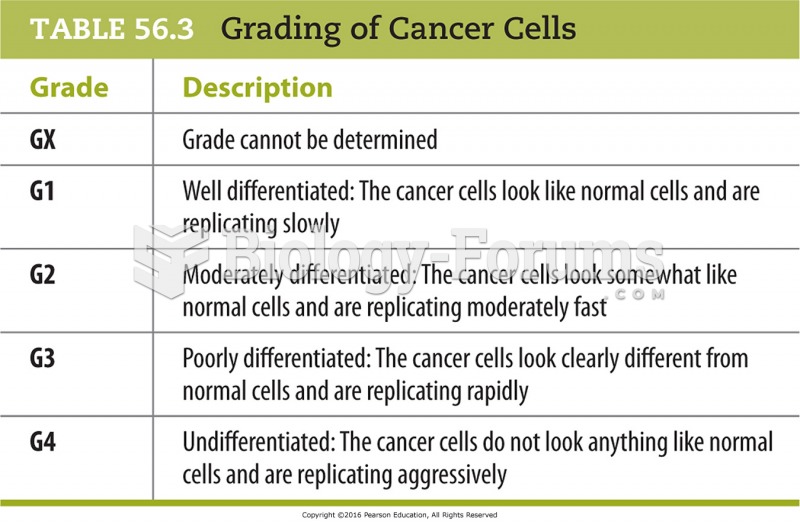|
|
|
Blood is approximately twice as thick as water because of the cells and other components found in it.
Bisphosphonates were first developed in the nineteenth century. They were first investigated for use in disorders of bone metabolism in the 1960s. They are now used clinically for the treatment of osteoporosis, Paget's disease, bone metastasis, multiple myeloma, and other conditions that feature bone fragility.
When blood is exposed to air, it clots. Heparin allows the blood to come in direct contact with air without clotting.
If all the neurons in the human body were lined up, they would stretch more than 600 miles.
Hyperthyroidism leads to an increased rate of metabolism and affects about 1% of women but only 0.1% of men. For most people, this increased metabolic rate causes the thyroid gland to become enlarged (known as a goiter).






